Worshipful Master
W. Larry Johnson

Senior Warden
Bro. Dean Paulcheck

Junior Warden
Bro. Kevin Gilbert

Treasurer
Bro. Bill Ringler

Secretary
RW Mason W. Russell

Senior Deacon
Bro. James Wolfe

Junior Deacon
Bro. Trevor Murrah

Senior Steward
Bro. Michael Korda

Junior Steward
Bro. Shannon Patrick de Lima

Chaplain
Bro. Matt Hamilton

Marshal
W. Jeff Kagan

Tyler
Bro. Jeremy Lynn
Lodge Information
Stated Communications: First and Third Tuesdays
Dinner 6:30pm, Meeting at 7:30pm
Practice/Instruction:
Every Wednesday 6:30pm
Lodge Address:
1959 14th Ave, Vero Beach, FL 32960
Facebook:
https://www.facebook.com/vbmasons/
Website:
www.vbmasons.com
Email: VB250masons@gmail.com
Phone: (772) 202-2513
2025 Committees
Finance: Larry Johnson, William Ringler, RW Mason Russell, Matt Hamilton
Vigilance: W. Jeff Kagan, Larry Johnson, Kevin Gilbert, RW Ken Greenhill
Investigations:
Masonic Education: Kevin Gilbert, RW Mason Russell, RW Ken Greenhill, W Lou Abru
Lodge Mentor: Matt Reuther
Charity & Brotherhood Relief: W Jeff Kagan, Larry Johnson, Kevin Gilbert
Building Committee: Kevin Gilbert, W. Matt Reuther, Dean Paulcheck, W Paul Lucas
Lodge Instructor:
Fellowship Committee: James Wolf, Chris Flag, Daniel Hawkins
Officers are elected by the members of the lodge, although a few are appointed by the Worshipful Master. In most lodges, the officers serve in their positions for one year. The names and duties of the officers are mostly taken from very old customs practiced by the medieval stonemasons’ guilds, where Freemasonry originated.
In England in the 1400s, under the reign of King Edward III, local (or what we now call municipal) governments grew out of the merchant and craft industries of the towns. The guilds had lots of money and property, as well as organizational and administrative experience. Heads of the guilds became heads of town councils, mayors, sheriffs, and more.
One of the ways a local official proclaimed his rank was by wearing a badge of office, or jewel, on a chain around his neck. This practice survives today. Masonic lodges do the same thing to identify their officers, carrying over this old guild tradition. Masonic jewels of office are symbolic (naturally).
The first Grand Lodge of Free and Accepted Masons was established in 1717 in London. In 1718, English Freemasonry spread to France and Spain, and after 1729, to India, Italy, Poland, and Sweden. Freemasonry spread to other parts of Europe and eventually made its way to the American colonies. In 1733, the first American lodge was established in Boston, under the authority of the Grand Lodge of England. The United States now has grand lodges in all 50 states and the District of Columbia.
Masonic officers are generally part of what is called a progressive line, also known as “going through the chairs.” It is a line of succession that moves up one position at a time from one year to the next. When a man is appointed to the Junior Steward’s position, in a perfect set of circumstances, seven years later he will be Worshipful Master. Although this curious plan for leadership has its drawbacks, it was designed based on the philosophy of equality among Masons. The progressive line is most common in the United States, but it exists in many other jurisdictions, as well.
There is supposed to be no politicking or campaigning for an officer’s position. In the ideal lodge situation, each man simply advances each year, learning each position’s duties and a portion of the Masonic ceremonies. By the time he becomes Worshipful Master of the lodge, he has sat in every chair except, perhaps, the Secretary and Treasurer. He has learned public speaking, management of a volunteer organization, decorum, and responsibility. And eliminating the annual popularity contest for election that many groups suffer results in a smoother, friendlier line of succession. Any man, regardless of his social, business, or economic position outside the lodge room, may aspire to be Master of his lodge.

